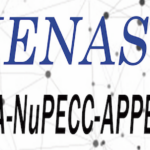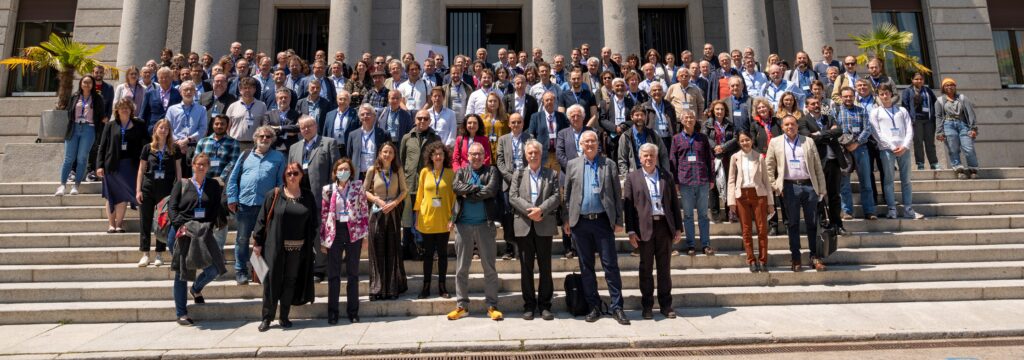
JENAS: Synergies on the Path of European Astroparticle, Particle and Nuclear Physics
The second JENAS, Joint ECFA (European Committee for Future Accelerators) – NuPECC (Nuclear Physics European Collaboration Committee) – APPEC (AstroParticle Physics European Consortium) Seminar was held in May 2022 in the auditorium of CSIC in Madrid: see https://indico.cern.ch/event/1040535/. For three days members of the European astroparticle, nuclear and particle physics communities presented their overlapping challenges and strategies. The symposium offered both senior and junior scientists of the three communities as well as representatives of the relevant funding agencies the opportunity to get a taste of each other’s activities. For many of the more than 160 participants, it was their first on-site attendance at a conference after more than two years of the Covid pandemic. The aim of the JENA symposium series is to achieve a comprehensive assessment of overlapping research topics in order to explore more efficiently our understanding of both the smallest and largest structures in nature.
The symposium started with overview talks on research highlights and strategies of the three individual research fields. A major part of the symposium concerned the progress and plans of the six joint projects that have emerged since the first JENAS in 2019: dark matter (iDMEu initiative); gravitational waves for fundamental physics; machine-learning optimised design of experiments; nuclear physics at the LHC; storage rings to search for charged-particle electric dipole moments; and synergies between the LHC and future electron–ion collider experiments. All these projects are open networks in which new interested people can participate at any time (contact points see under http://nupecc.org/jenaa/?display=eois). The discussions on these joint projects were complemented by a poster session where young scientists presented details of these activities.

Members of the astroparticle, nuclear and particle physics communities met in Madrid (CSIC) in May 2022 for the second JENAS Symposium.
R&D of detectors, Big Data computing and applications of Artificial Intelligence in the analysis and design of detectors and telescopes are just a few examples of developments that are important for our research and that were discussed at the meeting. Overview talks and round-table discussions on organizational matters related to education, outreach, open science and transfer of knowledge, provided lively debates between the participants. In addition, first results of surveys on diversity and the recognition of individual achievements in medium-size and large collaborations were presented and discussed. For the latter, a joint APPEC–ECFA–NuPECC working group has presented an aggregation of best practices already in place. A major finding is that many collaborations have already addressed this topic thoroughly. However, they are encouraged to further monitor progress and consider introducing more of the best practices that were identified.
The physics presented at the seminar, especially in the context of future large-scale global research facilities such as the FAIR accelerator complex, the HL-LHC or the Einstein Telescope, which always deal with cross-cutting issues, requires concerted action not only among scientists but also with the relevant funding agencies. One day of the seminar was dedicated to presentations and closed discussions with representatives of the European funding agencies and the European Commission. They were asked to assess whether appropriate funding programmes and organisational structures could be created to exploit synergies between the research fields to enable a more efficient use of resources. The recommendations made and feedback received from the seminar participants and the funding agencies will be very thoroughly considered and in particular the third JENA seminar in about three years will be very carefully planned and coordinated with the three communities and the funding agencies at an early stage.
The excellent organization and hospitality of the local organizers in Madrid, led by Maria Jose Garcia Borge, largely contributed to the success and the enjoyable atmosphere of JENAS 2022.
 Andreas Haungs, KIT (APPEC chair)
Andreas Haungs, KIT (APPEC chair)
Karl Jakobs, U Freiburg (ECFA chair)
Marek Lewitowicz, GANIL (NuPECC chair)
See also
-
Nuclear Physics News, 2022, Volume 32/3, p 32; https://www.tandfonline.com/toc/gnpn20/32/3
-
CERN Courier, Nov/Dec 2022; https://cerncourier.com/p/magazine/



